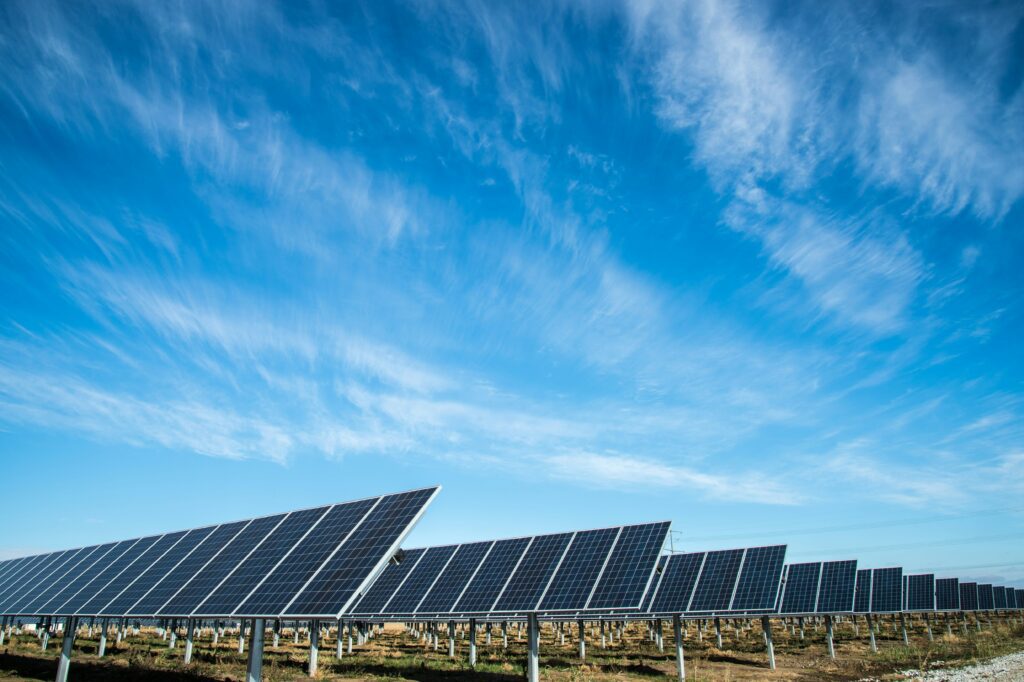Why Invest In Solar PanelsNow in 2024:
Solar energy is becoming increasingly popular worldwide. People are turning to solar power because it’s clean, renewable, and good for the environment. Unlike fossil fuels, solar energy doesn’t produce harmful emissions that contribute to climate change. This makes it a sustainable option to invest in Solar Panels.

Investing in solar energy now is a smart choice for several reasons. Firstly, it helps reduce your carbon footprint. By using solar panels to generate electricity, you decrease the amount of greenhouse gases released into the atmosphere. This helps combat global warming and its adverse effects on the planet. Additionally, solar energy is abundant and freely available. It relies on sunlight, which is a resource that won’t run out anytime soon, Making it a strong reason why you should invest in solar Panels now.
Table of Contents
Financial Benefits and Long-Term Savings
When you invest in solar Panels, It can lead to significant long-term savings on electricity bills. Once you install solar panels, you can generate your electricity from sunlight, reducing your reliance on utility companies. This can result in lower monthly energy costs over time, especially as energy prices fluctuate.
Moreover, many governments and local authorities offer incentives and rebates for installing solar panels. These incentives can help offset the initial cost of purchasing and installing solar energy systems. Additionally, some regions have net metering policies that allow homeowners to sell excess electricity back to the grid, further offsetting costs or even generating income.
Energy Independence and Security
Energy independence and security are crucial benefits of investing in solar energy. By investing in solar panels, individuals and businesses can generate their electricity, reducing reliance on external sources like utility companies. This independence ensures continuous power supply, even during grid outages or emergencies, providing reliability and peace of mind. Solar energy empowers users to be more self-sufficient in meeting their energy needs, contributing to a more secure and resilient energy future.
Solar power offers a reliable alternative to traditional energy sources, enhancing energy security by diversifying the energy mix. This diversification reduces vulnerability to supply disruptions and price fluctuations in fossil fuels. With solar panels, individuals can maintain essential functions and services independently, enhancing overall energy resilience at both individual and community levels. Embracing solar energy not only promotes energy independence but also strengthens energy security for a sustainable future.
Environmental Impact and Sustainability
Embracing solar energy has a significant positive impact on the environment and promotes sustainability. Solar power generates electricity without producing harmful greenhouse gases like carbon dioxide, which contribute to climate change. By harnessing the sun’s renewable energy, solar panels help reduce air pollution and mitigate the environmental impact associated with traditional fossil fuel-based electricity generation.
Furthermore, solar energy is a sustainable solution as sunlight is a virtually limitless resource. Unlike finite fossil fuels, solar power is abundant and inexhaustible, making it a reliable source of clean energy for future generations. Investing in solar contributes to global efforts to combat climate change by reducing reliance on non-renewable energy sources and minimizing ecological footprint. Thus, promoting solar energy adoption supports environmental conservation and fosters long-term sustainability for a cleaner and greener planet.
Environmental Benefits of Solar Energy: Promoting Sustainability and Clean Power
Investing in solar energy today is a pivotal step towards a sustainable future. By the power of the sun, we not only reduce our carbon footprint but also pave the way for energy independence. This renewable source of energy offers long-term benefits, from lower energy bills to reduced greenhouse gas emissions, contributing significantly to environmental conservation.
Moreover, solar energy systems continue to advance in efficiency and affordability, making them increasingly accessible to homes and businesses worldwide. Governments and industries are also recognizing the strategic importance of solar power, leading to widespread adoption and investment. As we move towards a greener economy, embracing solar energy stands as a cornerstone of our commitment to a cleaner, healthier planet for all.
If You have any doubts or queries,Feel Free to contact us on our LinkedIn Page!
FAQs About Investing in Solar Energy
1. How can solar energy reduce my electricity bills? S
olar energy systems generate electricity from sunlight, reducing your reliance on traditional utility power. This can lead to significant savings on your electricity bills over time.
2. Are there government incentives for installing solar panels?
Yes, many governments offer incentives such as tax credits, rebates, and grants to encourage the adoption of solar energy. These incentives can offset the initial installation costs.
3. What is the environmental impact of solar energy?
Solar energy produces clean electricity without emitting greenhouse gases or other pollutants, unlike fossil fuels. It helps reduce carbon footprints and contributes to cleaner air and water.
4. How long do solar panels last?
Solar panels typically come with warranties ranging from 20 to 25 years. They can continue to generate electricity for decades beyond their warranty period, with minimal maintenance.
5. Is solar energy reliable in all weather conditions?
Solar panels can still generate electricity on cloudy days, although their efficiency may be lower. In regions with less sunlight, larger solar panel systems or backup energy storage can ensure reliable power supply.
One Response